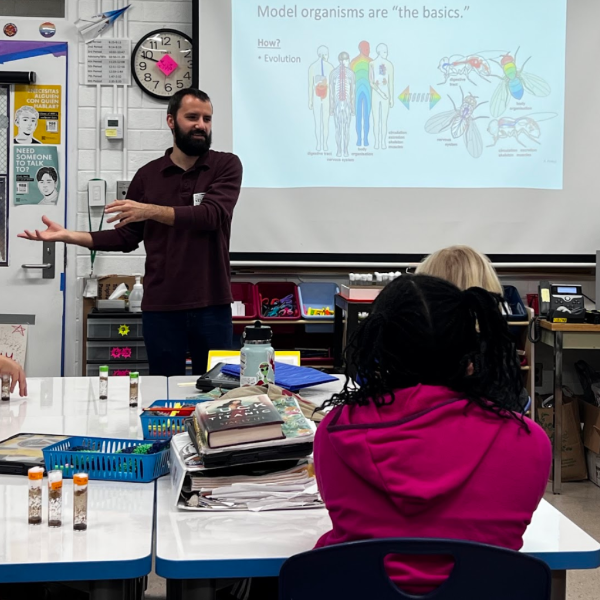College of Arts & Sciences Dean Jim White announced the two newest scholars in our Working on Women in Science (WOWS) initiative, which is dedicated to professional advancement in the sciences in the College. Congratulations to Professors Laura Mersini-Houghton in physics and astronomy and Karin Pfennig in biology.
As WOWs Scholars, they will serve two year-terms, receiving annual grants to pursue initiatives of their choosing, and working in close partnership with Associate Dean for Research and Innovation Kelly Giovanello and Senior Associate Dean for Natural Sciences Jaye Cable. Their appointments begin July 1.
Karin Pfennig is a behavioral and evolutionary ecologist who blends field and laboratory work to understand the role of behavior in the origins and distribution of biodiversity. She and a team of faculty and scientists have started a new collaborative organization, the Carolina Biodiversity Collaborative, to develop solutions to the global biodiversity crisis.
She has a strong record of advancing women in the sciences, including work with national programs such as Girls Advancing in STEM. Here at UNC, she has served as a peer mentoring circle facilitator for female junior faculty as part of the Targeting Equity in Access to Mentoring (TEAM) ADVANCE program. She has served in several leadership roles at UNC-Chapel Hill, including service as a member and chair of the Appointments, Promotions and Tenure Committee and as biology’s associate chair for academic affairs. She is a graduate of the University’s Academic Leadership Program.
Dean White looks forward to learning what initiatives Professors Mersini-Houghton and Pfennig will take on in their new role as WOWS Scholars.
